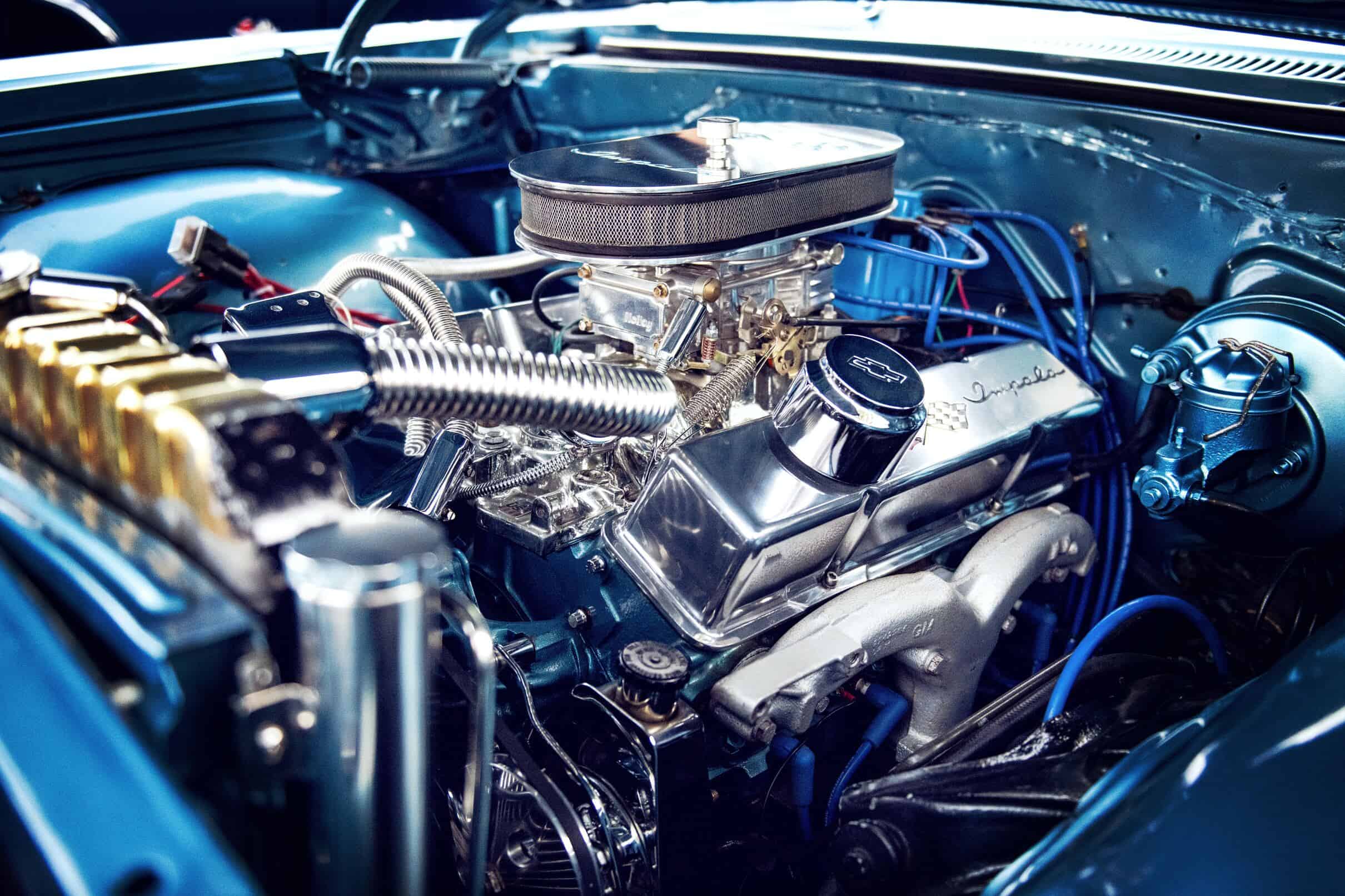Quick Links
Car Engine Types & Their Reliability
What Makes Car Engines Reliable & Durable?
Top 10 Most Durable Car Engines Ever Built
Comparing the Best Car Engines: Reliability Data
What Car Brands Have the Most Reliable Engines?
Vehicle & Engine Lifespan Expectations
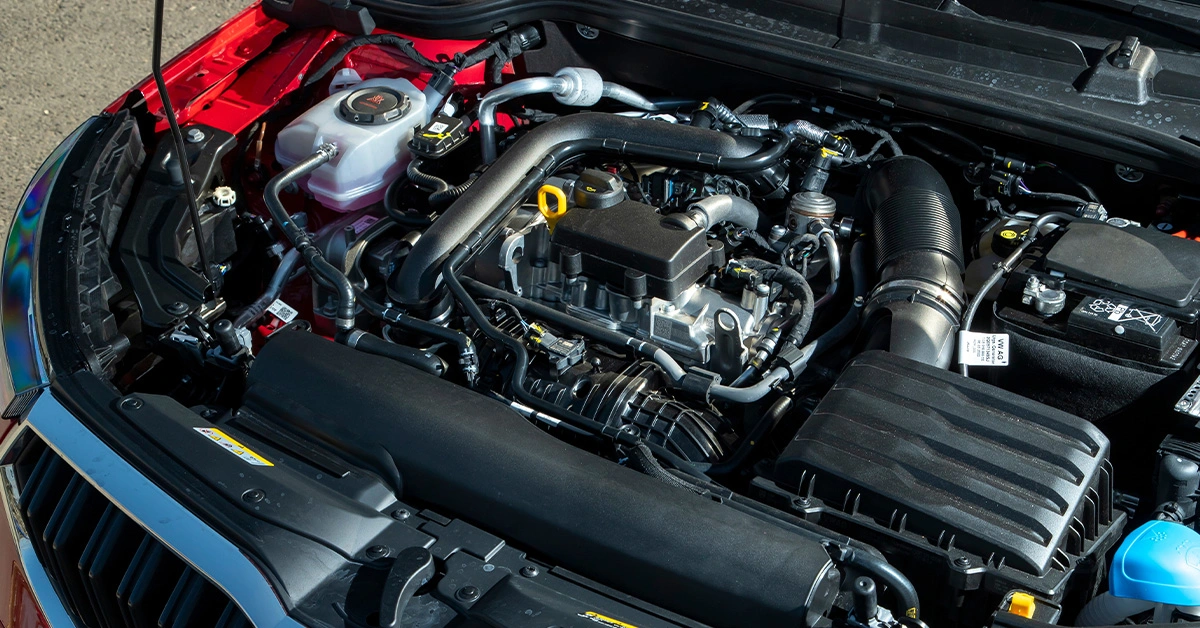
Car Engines With Real Longevity
When you’re choosing a car, engine reliability should be one of your top priorities. A solid, well-built engine means fewer unexpected repairs, lower running costs, and the peace of mind that your vehicle won’t let you down when you need it most. Whether you’re commuting during the week or heading out on longer trips at the weekend, a dependable engine makes every journey that little bit easier, and stress-free.
In this guide, we’re taking a closer look at some of the most reliable engines ever built. We’ll dig into what makes them so durable, explore the key features that help them last, and share a few tips on how to keep your own engine running sweet for years to come. From renowned Japanese craftsmanship to the precision of German engineering, these engines have earned their reputation the right way- through years of real-world performance.
Understanding Car Engine Types & Their Reliability
Before diving into our top 10 list, it’s important to understand the different types of engines and how their design affects reliability. Each layout comes with its own strengths, weaknesses, and typical use cases: some prioritise simplicity and ease of maintenance, while others aim for power or packaging efficiency. The type of engine under the bonnet can influence not just how a car drives, but how long it lasts and how costly it is to maintain over time.
Common Car Engine Types
Inline Engines (I4, I6): These engines have cylinders arranged in a straight line. They’re typically well-balanced, with fewer moving parts, making them inherently reliable. The inline-4 is the most common configuration in modern cars, while the inline-6 offers exceptional smoothness.
V Engines (V6, V8): With cylinders arranged in a V-shape, these engines can fit more power into a compact space. They’re common in larger vehicles like SUVs and sports cars but can have more complex maintenance requirements.
Flat/Boxer Engines: Used by manufacturers like Subaru and Porsche, these engines have horizontally-opposed cylinders that create a lower centre of gravity. They’re known for smooth operation but can be more challenging to work on.
Rotary Engines: Though rare, these compact engines use rotors instead of pistons. While innovative, they typically require more maintenance and aren’t known for longevity.
Diesel Engines: Generally built stronger to handle higher compression ratios, diesel engines often outlast their petrol counterparts when properly maintained. Diesels can also help you save on fuel costs.
“I purchased a 2014 1.6TDI Ford Focus at 160,000 miles in 2023. My partner thought I was crazy, but we’re on 220,000 today (19/02/2026), and all I’ve had to do is sort an oil leak!”
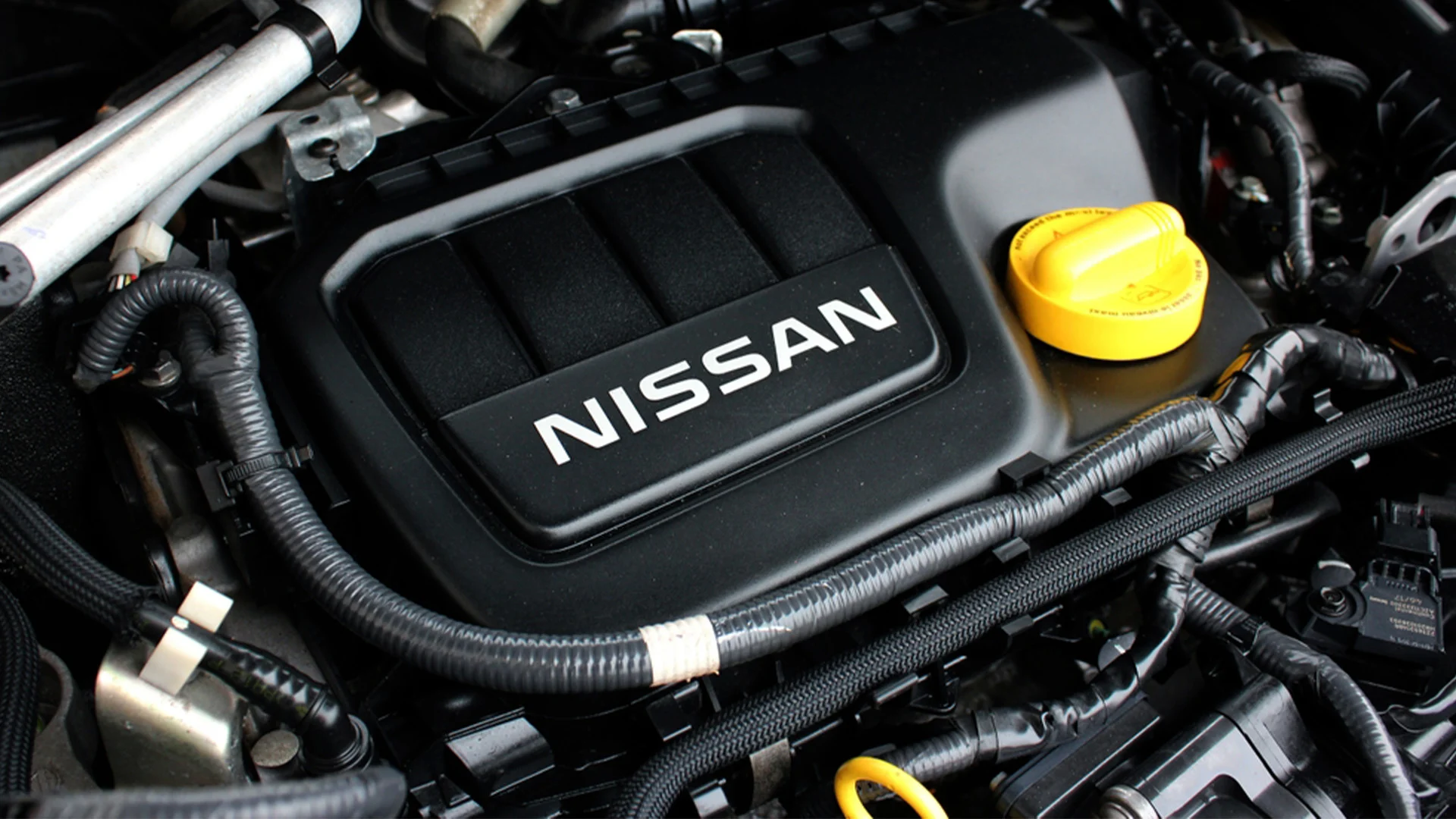
What Makes Car Engines Reliable & Durable?
The difference between an engine that lasts 100,000 miles and one that surpasses 300,000 miles comes down to several key factors. It’s not just about the brand name or how the car is driven- long-term engine durability is the result of thoughtful design, careful manufacturing, and a commitment to quality at every stage. From the materials used to the way an engine is tuned, each decision made by engineers can either extend an engine’s life or shorten it dramatically. Here are some of the key factors that can transform a good car engine into a great car engine:
Engineering Excellence: According to the Society of Automotive Engineers (SAE), engines designed with simplicity in mind tend to last longer. Fewer moving parts mean fewer things that can go wrong. This is why many of the most reliable engines feature straightforward designs without overly complex systems.
Quality Materials & Construction: The materials used in an engine play a huge role in how well it holds up over time. High-quality metals like forged steel or cast iron in key components (such as the crankshaft, cylinder block, and connecting rods) can make the difference between an engine that lasts decades and one that wears out prematurely. Precision in manufacturing and solid build quality help prevent common issues like warping, cracking, or accelerated wear, especially under stress or high mileage.
Conservative Tuning
Tuning refers to how an engine is calibrated to deliver power, efficiency, and responsiveness. When engines are tuned conservatively, they’re usually not operating at the upper limits of their capability. This lowers internal stress, reduces wear, and keeps temperatures and pressures within safer margins- great news for long-term durability. On the other hand, aggressive or poorly executed tuning can cause serious problems. A video by High Performance Academy breaks down common fails and how incorrect tuning can lead to detonation, overheating, and even complete engine failure.
Effective Cooling and Lubrication
Proper cooling prevents warping and cracking, while effective lubrication reduces friction and wear. The best engines feature robust cooling systems and oil passages designed to maintain optimal operating conditions.
Statistical Insight
A 2023 article published on Forbes suggested that with regular servicing and proper care, many modern car engines can now exceed 250,000 miles– far beyond the lifespan of engines built a few decades ago. And while that number might still sound ambitious to some, many of the engines we’re about to cover go well beyond that, proving just how far engine reliability has come.
“Today’s cars are vastly superior to their predecessors; they will likely be on the road for upwards of 250,000 miles before they are crushed for recycling.”
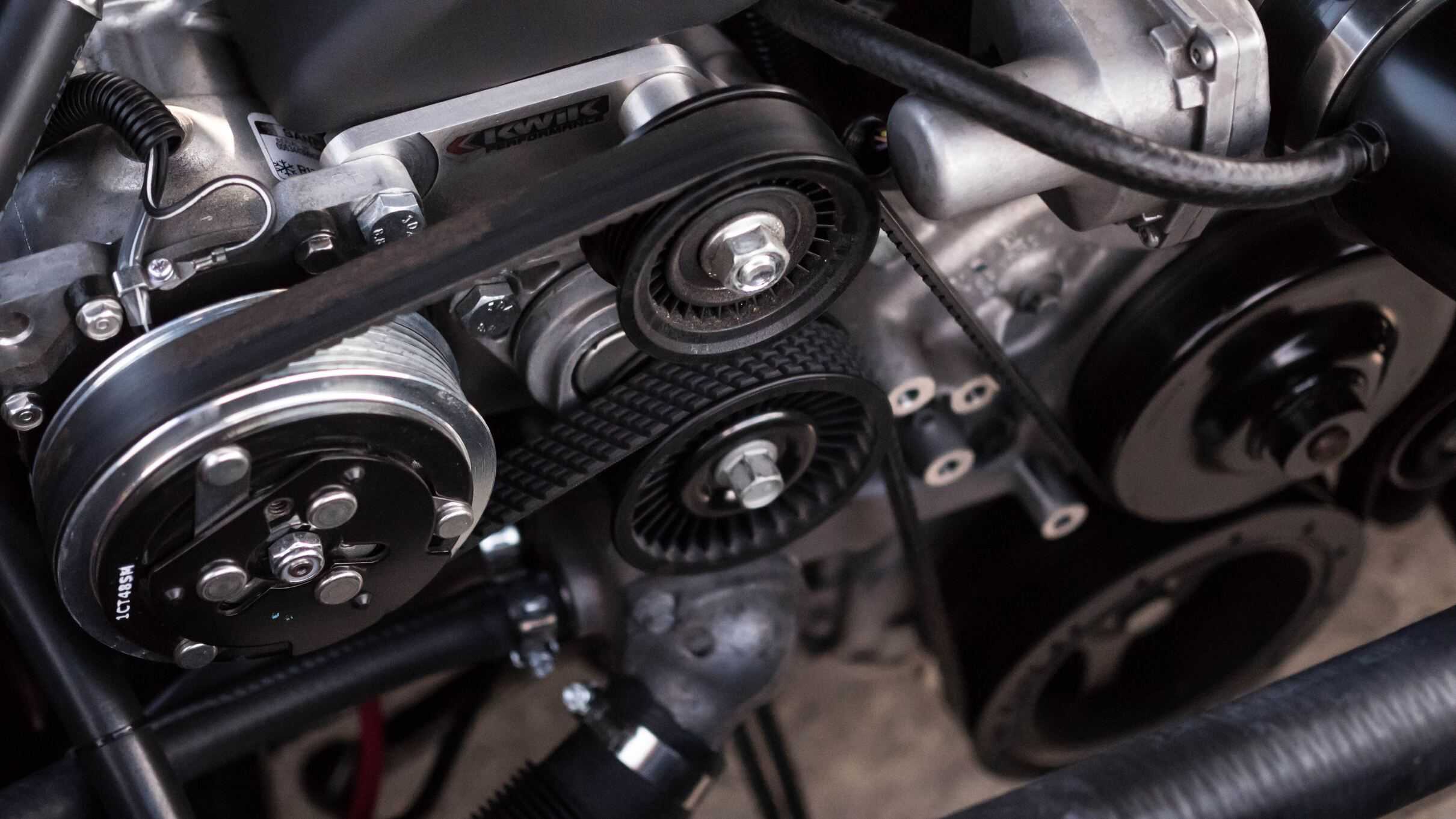
Top 10 Most Durable Car Engines Ever Built
Some engines are built to perform. Others are built to last. But only a select few manage to do both, earning reputations for going the distance, year after year, mile after mile. Here’s a detailed look at ten of the most durable automobile engines ever built, and what makes them stand out.

1. Toyota 1HD-T / 1HD-FT / 1HD-FTE
The Toyota 1HD-FTE engine — part of the 4.2-litre 1HD diesel family used in the Land Cruiser 80 and 100 Series — is one of the most durable production engines Toyota has ever built. Produced through the 1990s and 2000s, this inline-six turbo diesel was engineered for harsh environments, remote travel, and sustained heavy loads rather than outright performance.
Built around a cast-iron block and head, with a forged steel crankshaft and extremely robust internals, the 1HD engines were designed to prioritise longevity over complexity. The latter 1HD-FTE version introduced electronic direct injection, improving efficiency without sacrificing strength. These engines are known for their ability to run hundreds of thousands of kilometres with consistent maintenance, and at least one documented example exceeded 1,000,000 kilometres on the original engine, and that’s why it earns it’s position as number 1.
Unlike high-strung performance motors, the 1HD’s low specific output, conservative boost levels, and strong cooling system reduce internal stress. When serviced properly, especially with regular oil changes and cooling system care, they are capable of extraordinary mileage. The global Land Cruiser aftermarket also ensures parts availability remains strong, particularly in markets where these vehicles are used commercially or for overlanding.
Engine Highlights:
✓ 4.2-litre inline-six turbo diesel built for heavy-duty use
✓ Cast-iron construction prioritising strength over weight
✓ Proven to exceed 1,000,000 kilometres in real-world use
✓ Designed for towing, off-road endurance and remote reliability
✓ Strong global parts and specialist support network
“My dad (Ruggero Grech-Cumbo) and uncle’s (Aurelio) company purchased an iconic 60 Series 1HZ Land Cruiser in 1984 in Joburg, the same year that I was born,” explained Ulrico in his email. “Over the past 38 years, the car has been driven daily as much as it has been taken on family vacations and is now nearing its one-millionth-kilometre birthday. My dad taught me to drive in this car as a 14-year-old. I experienced my first road trips driving to Sodwana Bay and Cape Town in the late ’80s (a bug that bit so hard that I now regularly overland with my own modified 70 Series Land Cruiser).”
2. Mercedes-Benz OM617 Diesel Engine
The OM617 engine from Mercedes Benz is one of the most respected diesel engines in automotive history. Built between 1974 and 1991, this 3.0-litre five-cylinder turbodiesel gained its reputation in the rock-solid W123 and W126 series, which are still regarded by some as the world’s most reliable cars.
The engine’s cast-iron block and head are built like an anvil, and its fully mechanical fuel injection system makes it incredibly simple and reliable (there are virtually no electronics to fail). Its relatively low output also means internal stresses are kept to a minimum, which is why examples of this engine running past 500,000 miles are common, with some even reaching over a million. The OM617 also has excellent oil cooling and is tolerant of low-quality diesel, making it a favourite in remote regions and among diesel swap enthusiasts. It’s a true tribute to Mercedes’ golden era of engineering, when longevity was a key design goal rather than an afterthought.
Engine Highlights:
✓ Frequently reaches 500,000+ miles with proper care
✓ Built almost entirely from cast iron for maximum durability
✓ Simple mechanical fuel injection system
✓ Excellent resistance to poor fuel quality
✓ A favourite in Africa and the Middle East for a reason
3. Toyota 22R / 22R-E Engine
The Toyota 22R and its fuel-injected sibling, the 22R-E, are widely considered some of the most reliable four-cylinder engines ever produced. Manufactured between 1981 and 1997, these 2.4-litre engines powered a wide range of Toyota vehicles, from the bulletproof Hilux pickup to the 4Runner and Celica. Built with a cast-iron block and aluminium head, the 22R was designed with simplicity and strength in mind. A chain-driven timing system reduces the need for timing belt replacements, and its low power output means internal components are never overly stressed. The result is an engine that regularly surpasses 300,000 miles, with many owners reporting 400,000 or more without a major rebuild. What makes the 22R especially beloved is its ease of maintenance: parts are widely available and repairs are straightforward and relatively budget-friendly.
Engine Highlights:
✓ Routinely hits 300,000–400,000 miles
✓ Chain-driven timing system reduces maintenance worries
✓ Huge parts availability
✓ Simple to service—even in remote locations
✓ Known worldwide as “the engine that won’t die”
4. Honda B-Series VTEC Engines
Honda’s B-Series engines, especially the B16A, B18C, and other VTEC-equipped variants, strike a perfect balance between high-revving fun and bulletproof dependability. Produced from the late 1980s into the early 2000s, these engines powered everything from the Civic SiR to the Acura Integra Type R. Despite their high-revving nature (some redlining beyond 8,000 RPM) the B-Series engines are incredibly durable, thanks to tight tolerances, forged internals, and superior oil control. The VTEC system cleverly switches between cam profiles, allowing the engine to be both efficient and powerful depending on the load. With regular maintenance and high-quality oil, it’s not unusual for B-Series engines to exceed 300,000 miles, and many still perform well on track days and in street builds.
Engine Highlights:
✓ VTEC system balances efficiency and performance
✓ Strong internals and clean high-revving design
✓ Known for excellent oil management & thermal efficiency
✓ Still widely used in racing and tuning scenes
✓ A benchmark in small engine reliability
5. BMW N52 Inline-6 Engine
The BMW N52 engine is the last of the naturally aspirated inline-six motors from the German automaker and arguably one of the most reliable BMW engines ever created. Built between 2004 and 2015, the N52 powered a range of models from the 3 Series to the Z4, and it’s celebrated for its smooth power delivery, mechanical refinement, and solid reliability. BMW employed a magnesium-aluminium composite block to reduce weight while maintaining strength, an unusual and advanced move at the time. It also introduced Valvetronic, BMW’s variable valve lift system, which improved throttle response and efficiency.
The engine is well-balanced and smooth, with a high redline and strong torque curve. Despite being more complex than some others on this list, the N52 can easily reach 200,000 miles or more with proper oil change intervals and attention to cooling system maintenance, which is a known weak point. For a performance-oriented brand like BMW, the N52 represents a sweet spot of power, efficiency, and long-term reliability.
Engine Highlights:
✓ Silky smooth inline-six balance
✓ Typically lasts 200,000+ miles with attentive servicing
✓ Valvetronic system improves efficiency and throttle response
✓ Lightweight yet strong engine construction
✓ A sweet spot between modern performance and old-school durability
6. Lexus/Toyota 1UZ-FE V8 Engine
The 1UZ-FE is Toyota’s first all-aluminium V8 and was introduced in the Lexus LS400 in 1989 as part of a bold effort to challenge Mercedes-Benz and Audi in the luxury car space. This 4.0-litre engine was designed from the ground up for durability, smoothness, and refinement.
With six-bolt main bearings, a belt-driven dual overhead cam setup, and forged components, the 1UZ-FE is often described as “overbuilt.” Its conservative tuning and strong cooling system contribute to its ability to last well over 300,000 miles with only routine servicing. The engine also earned praise for its quiet operation and minimal vibration, which made the LS400 feel far more refined than many of its European competitors at the time. Because of its strength, it’s often used in high-performance builds, including drift cars and kit cars. It’s a textbook example of how Toyota blends luxury with longevity.
Engine Highlights:
✓ All-aluminium construction for strength and weight savings
✓ Regularly surpasses 300,000 miles in real-world use
✓ Incredibly balanced and smooth
✓ Understressed design built for long service life
✓ A favourite for engine swaps thanks to its strength
7. Volvo Redblock Engines
Volvo’s Redblock engines, named for their iconic red-painted blocks, are inline-four and inline-five engines produced from the 1970s through the 1990s. Found in models like the 240, 740, and 940 series, these engines are legendary for their no-nonsense durability.
Built with a cast-iron block and head, the Redblocks are designed to handle extreme cold, long journeys, and minimal maintenance without complaint. The engines have a reputation for surviving well past 300,000 miles, often with the original internals intact. Their low compression ratios and conservative output helped reduce internal stress, and the engine’s simple mechanical design makes them easy to repair and service. Enthusiasts appreciate them not just for their longevity but for their tuning potential too, with many turbocharged variants holding up under significant power increases.
Engine Highlights:
✓ Built to survive harsh weather and rough roads
✓ Cast-iron construction with low-stress operation
✓ Known to exceed 300,000 miles without major overhaul
✓ Simple layout makes for easy maintenance
✓ Cult following among Volvo fans and tuners
8. Nissan VQ V6 Engine
The Nissan VQ engine family has been a staple in the company’s lineup since 1994, powering everything from the 350Z and Maxima to the Pathfinder and Infiniti G-series. These engines are known for their smooth performance, strong power output, and surprising reliability despite their relatively high-tech design. Constructed with aluminium blocks and heads, DOHC architecture, and variable valve timing, the VQ series strikes a balance between modern performance and old-school toughness. Many owners report clocking over 200,000 miles without major issues, especially in the earlier, naturally aspirated versions. The timing chain setup reduces long-term maintenance, and the engine is generally forgiving as long as oil changes and cooling system care are kept up.
Engine Highlights:
✓ DOHC design with strong mid-range torque
✓ Found in everything from sedans to sports cars
✓ Appears on several reputable best engine lists
✓ Routinely hits 200,000+ miles with basic care
✓ Smooth and responsive across the rev range
9. Ford Windsor V8 Engine
The Ford Windsor V8 is a classic piece of American engineering that was produced from 1962 until 2001. With displacements ranging from 221 to 351 cubic inches, this pushrod V8 engine was used in a variety of vehicles, from the Mustang and Falcon to lorries and vans. Its simple cast-iron construction and pushrod valvetrain mean fewer moving parts, which directly contributes to its reliability. Unlike modern engines filled with sensors and complex electronics, the Windsor can be diagnosed and repaired with basic tools. It also has a strong bottom end and excellent aftermarket support, making it a favourite for hot rodders and classic restorers alike. When cared for, it’s not uncommon for these engines to go well beyond 200,000 miles, especially in vans and utility vehicles that weren’t pushed hard.
Engine Highlights:
✓ Extremely simple and easy to rebuild
✓ Commonly goes beyond 200,000 miles
✓ Legendary status in muscle car and lorry/truck communities
✓ Strong torque delivery and stout block design
✓ Huge aftermarket support
10. Mazda Skyactiv-G Engine
Last on our illustrious list is Mazda’s Skyactiv-G engine, a relatively new contender, First introduced in 2011, it has already earned a strong reputation for efficiency and dependability.
This naturally aspirated petrol engine features an unusually high compression ratio (up to 14:1 in some markets) yet doesn’t require premium fuel. It achieves this through clever engineering, including a long 4-2-1 exhaust manifold, specially shaped pistons, and multi-hole fuel injectors that ensure even combustion. Despite these complexities, the engine is surprisingly low-maintenance and has no turbo to worry about. Chain-driven timing gears add to its long-term appeal, and real-world examples are now showing over 150,000 miles with few issues.
Mazda struck a rare balance here: a modern, clean-burning engine that doesn’t compromise on long-term reliability. As more high-mileage Skyactiv-G cars hit the road, it’s becoming clear that this engine was built with durability in mind.
Engine Highlights:
✓ High compression (up to 14:1) for better fuel efficiency
✓ Advanced piston and injector design reduces wear
✓ Chain-driven timing for longevity
✓ Avoids turbo complexity without sacrificing performance
✓ Proving reliable as a daily driver and for long commutes
Comparing the Best Car Engines: Reliability Data
To better understand how these engines stack up in the real world, we’ve compiled key reliability indicators based on known mileage achievements, common failure points, and user-reported longevity. This comparison gives a clearer picture of just how durable these engines are when properly maintained.
| Engine Model | Years Produced | Common Vehicles | Average Lifespan | Common Issues | Reliability Rating | Notable Achievements |
|---|---|---|---|---|---|---|
| Toyota 2JZ-GE/GTE | 1991-2007 | Toyota Supra, Lexus GS/IS | 300,000+ miles | Oil leaks from VVTi system | ★★★★★ | Capable of handling 1,000+ bhp with modifications |
| Mercedes OM617 | 1974-1991 | W123, W126 | 500,000+ miles | Injector pump wear | ★★★★★ | One example documented at over 900,000 miles |
| Toyota 22R | 1981-1997 | Hilux, 4Runner | 400,000+ miles | Timing chain guides | ★★★★★ | Powers vehicles in the harshest conditions worldwide |
| Honda B-Series | 1989-2001 | Civic, Integra | 300,000+ miles | Valve seal wear | ★★★★☆ | Revolutionary VTEC technology |
| BMW N52 | 2004-2015 | 3/5/7 Series, Z4 | 200,000+ miles | Electric water pump failure | ★★★★☆ | First magnesium/aluminium composite block |
| Lexus 1UZ-FE | 1989-2002 | Lexus LS400, SC400 | 300,000+ miles | Starter motor position | ★★★★★ | Originally developed for Le Mans racing |
| Volvo Redblock | 1974-1998 | 240, 740, 940 | 300,000+ miles | Flame trap clogging | ★★★★☆ | Survived some of the harshest climates |
| Nissan VQ V6 | 1994-present | 350Z, Maxima | 200,000+ miles | Oil consumption in some variants | ★★★★☆ | Ward’s 10 Best Engines for 14 consecutive years |
| Ford Windsor V8 | 1962-2001 | Mustang, F-Series | 200,000+ miles | Rear main seal leaks | ★★★★☆ | Powered numerous motorsport victories |
| Mazda Skyactiv-G | 2011-present | Mazda3, CX-5 | 150,000+ miles* | Carbon buildup (direct injection) | ★★★★☆ | Highest compression ratio in mass-production petrol engines |
*Note: Mazda Skyactiv-G engines are still relatively new, so long-term data is still being established.
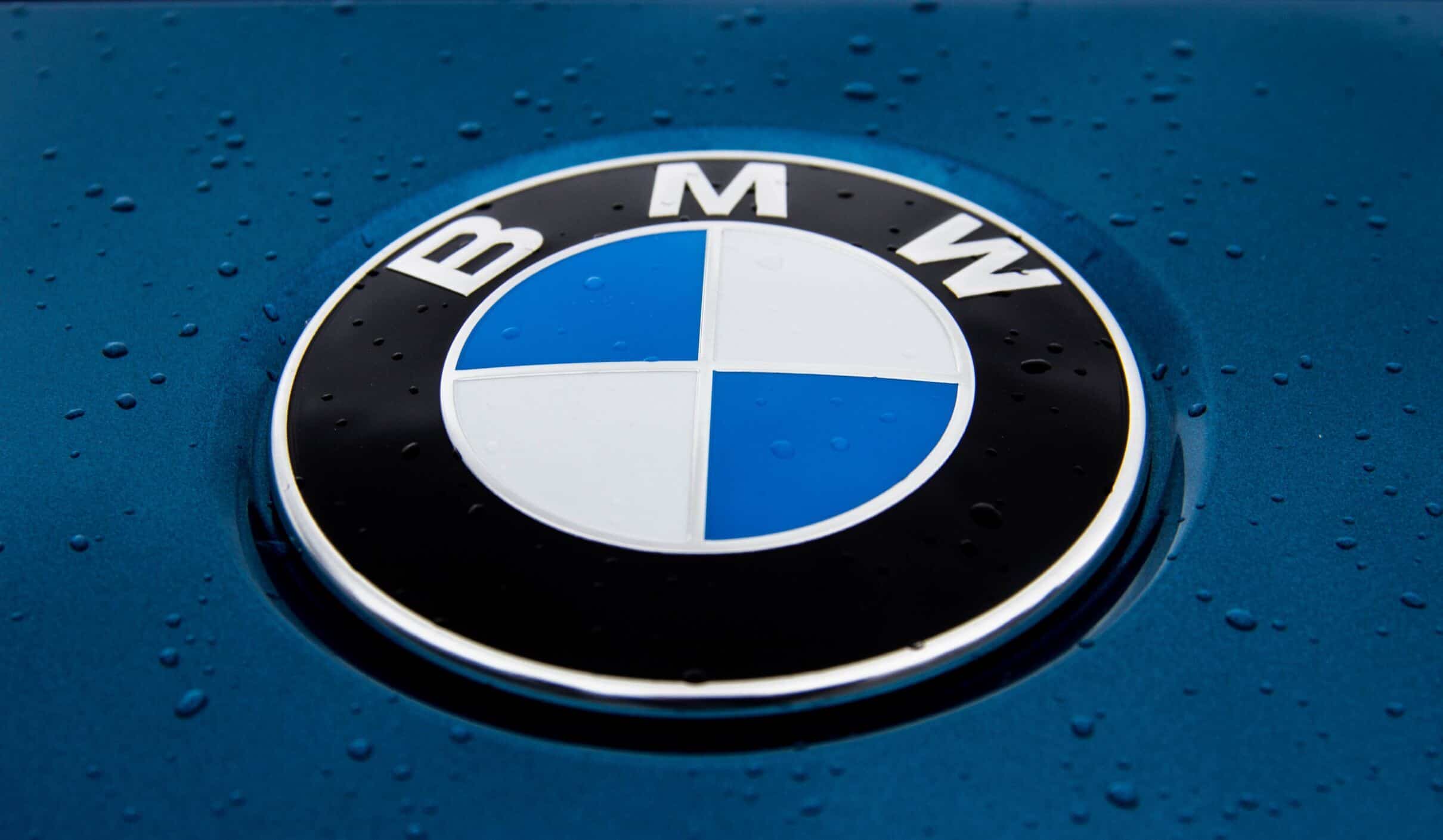
What Car Brands Have the Most Reliable Engines?
When it comes to engine reliability, certain manufacturers have built sterling reputations over decades. According to data from What Car? our partners Warrantywise and J.D. Power Vehicle Dependability Studies, these brands consistently produce the most reliable engines:
Toyota/Lexus
Toyota and its luxury division Lexus remain the gold standard for engine reliability. With a philosophy of conservative engineering and extensive testing, Toyota engines regularly outlast their competitors. The company’s commitment to reliability sometimes means adopting new technologies more slowly, but the result is exceptional durability.
Honda
Honda’s reputation for building reliable engines stems from their expertise in small engine design. Originally a motorcycle manufacturer, Honda brought precision engineering to their car engines. Their VTEC technology demonstrates how performance and reliability can coexist.
Mercedes-Benz (Diesel Engines)
While modern Mercedes vehicles have complex electronics, their diesel engines (especially older models) remain legendary for durability. The OM617 and its descendants established Mercedes as a leader in diesel engineering.
Mazda
Mazda has emerged as a reliability leader in recent years. Their focus on perfecting the internal combustion engine rather than rushing to turbocharging has resulted in exceptionally reliable motors. The Skyactiv engine family demonstrates Mazda’s commitment to efficiency without sacrificing longevity.
BMW (Straight-Six Engines)
BMW’s consistently rank near the top of the Warrantywise reliability index and the manufacturers straight-six engines, particularly naturally-aspirated versions, have earned a reputation for smooth operation and impressive longevity. Though their maintenance costs tend to be higher than Japanese alternatives, properly maintained BMW inline-six engines often exceed 200,000 miles.
Vehicle & Engine Lifespan Expectations
While some engines have earned legendary status for their ability to cover hundreds of thousands of miles, it’s equally important to understand what’s typical for most cars on the road today. Knowing how long an average vehicle and its engine are expected to last can help you make informed decisions when buying, financing or selling a car. Whether you’re looking to extend your current vehicle’s life or weighing the long-term value of a new purchase, having a realistic view of modern engine longevity is key.
Average Car Life Expectancy in the UK
According to data from the Society of Motor Manufacturers and Traders (SMMT), the average age of cars on UK roads has increased to 8.4 years, with many vehicles remaining in service for 12-15 years.
In terms of mileage, modern vehicles with proper maintenance should achieve:
- Economy cars: 150,000-200,000 miles
- Luxury vehicles: 150,000-300,000 miles
- Diesel engines: 200,000-350,000 miles
- Hybrid vehicles: 150,000-300,000 miles (with potential battery replacement)
As automotive engineering continues to improve, these figures are likely to increase. However, it’s worth noting that while engines may last this long, other vehicle components like transmissions and electronics may fail earlier.
Factors Affecting Vehicle Lifespan
Several factors influence how long a car engine will las, including:
- Maintenance schedule adherence: Following manufacturer-recommended service intervals is crucial
- Driving conditions: Stop-and-go traffic and short trips cause more wear than highway driving
- Climate: Extreme temperatures can accelerate wear
- Fuel quality: Using recommended fuel grades helps prevent engine damage
- Driving style: Aggressive driving causes premature wear
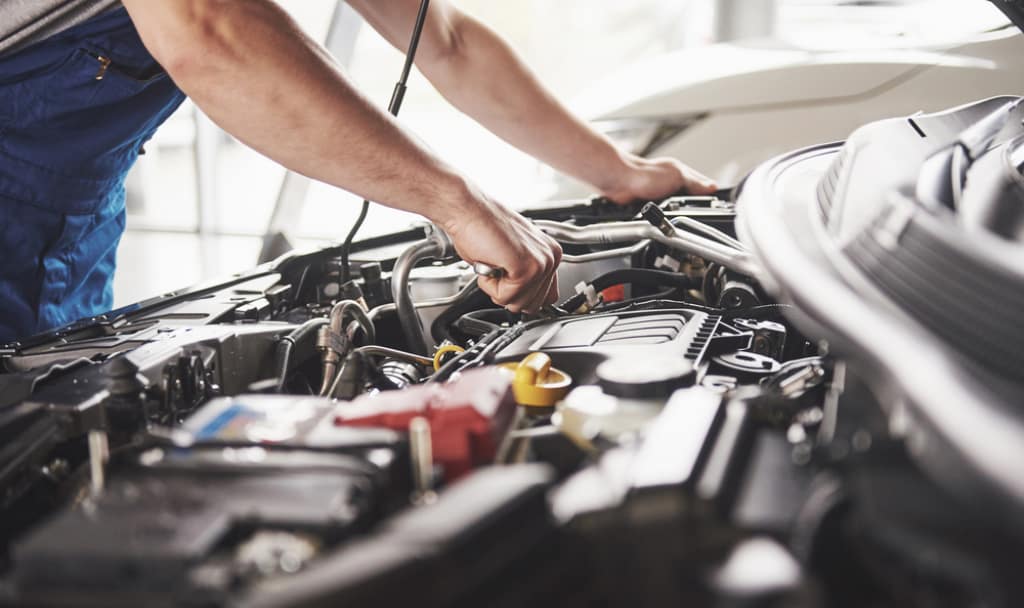
How to Extend Your Car Engine’s Lifespan
Now you’re familiar with some of the factors that influence car engine lifespan, let’s shine a light on some of the ways you can extend the life of your trusty car engine. As alluded to above, proper maintenance is absolutely crucial and if you have maintenance concerns you should always contact your dealer or a reputable garage. Here are some essential tips to keep your motor running smoothly for years to come:
Regular Car Engine Maintenance Essentials
- Oil changes: Follow manufacturer recommendations, but consider changing oil more frequently in severe conditions. As the AA advises, “Changing your oil regularly helps to improve your engine’s performance and extend its longevity. It’ll also help you to achieve maximum fuel mileage.”
- Filter replacements: Air, oil, and fuel filters should be replaced according to schedule
- Cooling system care: Flush and replace coolant as recommended
- Timing belt/chain service: Follow replacement intervals precisely- a failure here can be catastrophic
- Spark plug replacement: Fresh plugs ensure efficient combustion
Warning Signs of Engine Problems
In order to extend the life of your car engine it’s also vital to be alert for these symptoms that indicate potential engine issues:
- Check engine light: Never ignore this warning
- Unusual noises: Knocking, ticking, or grinding sounds
- Excessive exhaust smoke: Different colours indicate different problems
- Reduced performance: Loss of power or poor acceleration
- Fluid leaks: Oil, coolant, or other fluids under your car
- Increased fuel consumption: Sudden changes in efficiency
Guide to Finding Reliable Used Car Engines
If you’re searching for a used car, securing one with a dependable engine should be high on your list- and finding the right platform to start your search makes all the difference. At ChooseMyCar, we make that process easier by offering a wide selection of thoroughly vetted vehicles to buy on finance, many of which feature engines known for their long-term reliability.
Whether you’re after a budget-friendly runaround under £8,000 or a more refined option under £12,000, every car comes with a full vehicle history check, transparent condition report, and pre-sale inspections to give you peace of mind before you commit. Our listings include plenty of body styles like saloons and MPVs powered by engines featured in this guide, helping you match your budget to proven reliability.
What to Look for in a Used Car Engine
Once you’ve narrowed down your options, it’s important to evaluate the engine properly: it’s the heart of the vehicle, and its condition can make or break your ownership experience. Here are some key things to assess when inspecting a used car engine:
- Service history: A complete, documented service record shows that the engine has been maintained as recommended- one of the best indicators of long-term health.
- Compression test results: Even compression across all cylinders suggests good internal condition.
- Oil condition: Oil that’s clean and free of metal particles or sludge points to regular maintenance and minimal internal wear.
- External condition: Check for oil or coolant leaks, cracked hoses, rust, or excessive grime, all of which could signal deeper issues.
- Mileage vs. maintenance: While lower mileage is usually desirable, a higher-mileage engine that’s been well cared for often performs better than a lower-mileage one that’s been neglected. This checklist here offers more advice.





